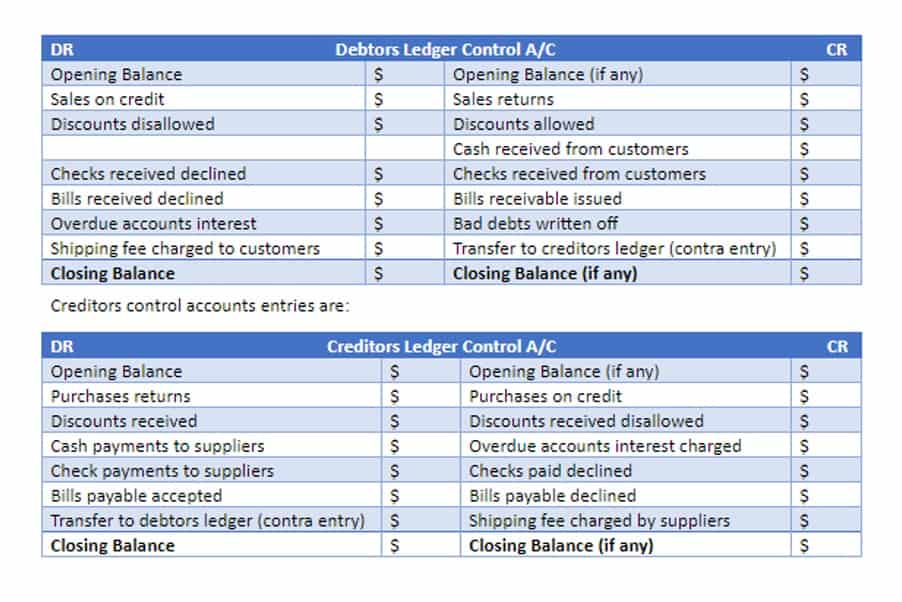What is Governmental Accounting?

These forecasts must be regularly updated to reflect changing economic conditions and other factors that could impact revenue streams. Debt Service Funds manage resources for the payment of long-term debt principal and interest. These funds provide a clear view of a government’s debt obligations and repayment strategies, which are critical for fiscal health and creditworthiness. Capital Projects Funds handle the acquisition or construction of major capital facilities, such as infrastructure or public buildings. These funds track large-scale investments separately from operational costs, aiding long-term financial planning.
- This article has explored the intricate world of fund accounting within government financial management, highlighting the diverse types of funds—Governmental, Proprietary, and Fiduciary—and their specific roles and accounting practices.
- Authorization acts and appropriation acts provide the legal authority for the government to operate and fund programs or activities.
- For instance, information about long-term debt and pension obligations helps citizens and investors understand the future financial commitments of the government, which can impact its ability to provide services and meet its obligations.
- This approach allows auditors to allocate resources more efficiently and concentrate on the most significant issues.
- Governments implement a range of internal controls to monitor and manage expenditures, including budgetary controls, approval processes, and regular financial reporting.
Pooled Income Funds Benefit Both Donor and Charity
The objective is to provide a transparent and accurate representation of financial activities to stakeholders, including taxpayers, policymakers, and oversight bodies. This form of accounting must adhere to strict legal and regulatory standards to ensure that all transactions are lawful and that resources are used appropriately. Government Accounting involves the specialization of accounting principles and procedures tailored to the needs and operations of governmental entities, including federal, state, and local units. The Governmental Accounting Standards Board (GASB) is an independent organization responsible for setting accounting and financial reporting standards for state and local governments in the United States. Established in 1984, GASB operates under the Financial Accounting Foundation (FAF) and is governed by a seven-member board appointed by the FAF Board of Trustees.
Making Intrafamily Loans with Intentionally Defective Grantor Trusts

Effective Government Accounting not only enhances the trust between the government and its citizens but also supports the sustainable and equitable development of society. This accounting discipline encompasses various processes, including budgeting, financial reporting, auditing, and compliance with statutory requirements. By maintaining accurate and transparent financial records, government accounting ensures that public funds are used effectively, promoting trust and confidence among citizens.
- Gross debt is debt held by the public plus intragovernmental debt, which is the amount that the government owes to its own accounts, primarily the trust funds for Social Security, Medicare, military retirement, and civil service retirement.
- In the private sector, the budget is a tool in financial planning and it isn’t mandatory to comply with it.
- This will likely lead to greater precision in fund tracking and reporting, enabling more dynamic and responsive budgeting processes.
- Debt Service Funds manage resources for the payment of long-term debt principal and interest.
- Appropriation acts make funding available to federal programs and activities by providing budget authority to federal agencies, usually by specifying an amount of money for a given fiscal year.
- Such laws delineate a program’s terms and conditions—often, its duration and eligibility rules.
The Essential Role of Cost Reporting in Hospital Financial Management and…
This method aligns with budgetary processes by focusing on short-term financial health and resource allocation, differing from full accrual accounting used in proprietary funds and the private sector. This article has explored the intricate world of fund accounting within government financial management, highlighting the diverse types of funds—Governmental, Proprietary, and Fiduciary—and their specific roles government accounting definition and accounting practices. We’ve seen how Governmental Funds support essential public services through taxation, while Proprietary Funds operate government services with a business-like approach, aiming to cover costs through user fees.
Operates within the framework of governmental regulations applicable to public sector entities. Focuses on accounting and financial reporting needs of businesses and nonprofit organizations. The Governmental Accounting Standards Board and the Federal Accounting Standards Advisory Board formulate the accounting framework. These principles and standards are applied across sectors to ensure that all parties look at their budgets and profits in the same way. Governments using a budgetary basis of accounting should understand the common differences between GAAP and the budgetary basis of accounting. It is the amount that the government owes to other entities (such as individuals, corporations, state or local governments, the Federal Reserve Banks, and foreign governments).
Is Selling Your Medical Practice to Venture Capital or Private Equity…

Appropriation credits are taken out of estimated revenues from taxes and trade and allocated to the proper agencies. Credits in appropriation accounts that are unused may be redistributed to other agencies or used for other purposes. In accounting, it refers to a breakdown of how a firm’s profits are divided up, or for the government, an account that shows the funds a government department has been credited with. A company or a government appropriates funds in order to delegate cash for the necessities of its business operations.

A downside of encumbrances is that they increase the complexity of government accounting to some extent. GFOA recommends that the budget document clearly define the basis of accounting used for budgetary purposes. If the budgetary basis of accounting and the GAAP basis of accounting are the same, this fact should be clearly stated. Disparities may include basis differences, timing differences, fund structure differences, and entity differences. The description of the differences between the GAAP basis of accounting and the budgetary basis of accounting should be written in a manner that is clearly understandable to those without expertise in either accounting or budgeting.

Understanding its principles and practices helps stakeholders evaluate financial health and operational performance. Use Wafeq – an accounting system to keep track of debits and credits, manage your inventory, payroll, and more. Empowering knowledge through specialized dictionaries and comprehensive https://hotelsevilladeoro.ec/purchase-transaction-journal-entries/ terminology management.
- The governmental accounting system has a different focus for measuring accounting than private sector accounting.
- Once budget authority has been provided for a given purpose, an agency can incur an obligation—a legally binding commitment.
- Do you need assistance determining what, if any, governmental component units may be your entity’s financial responsibility?
- Rather than measuring the flow of economic resources, governmental accounting measures the flow of financial resources.
- This method aligns with budgetary processes by focusing on short-term financial health and resource allocation, differing from full accrual accounting used in proprietary funds and the private sector.
Federal Tax Credits and Deductions for Family Caregivers
Governmental accounting plays a crucial role in ensuring transparency, accountability, and efficient use of public resources. Unlike private sector accounting, it focuses on the stewardship of taxpayer funds and adherence real estate cash flow to legal requirements. This specialized field is essential for maintaining public trust and supporting informed decision-making by government officials.
As technology advances, we can expect more sophisticated financial management systems that provide real-time data analysis and enhanced reporting capabilities. This will likely lead to greater precision in fund tracking and reporting, enabling more dynamic and responsive budgeting processes. It is essential that governments maintain adequate levels of fund balance to mitigate current and future risks (e.g., revenue shortfalls and unanticipated expenditures) and to ensure stable tax rates. In most cases, discussions of fund balance will properly focus on a government’s general fund.
